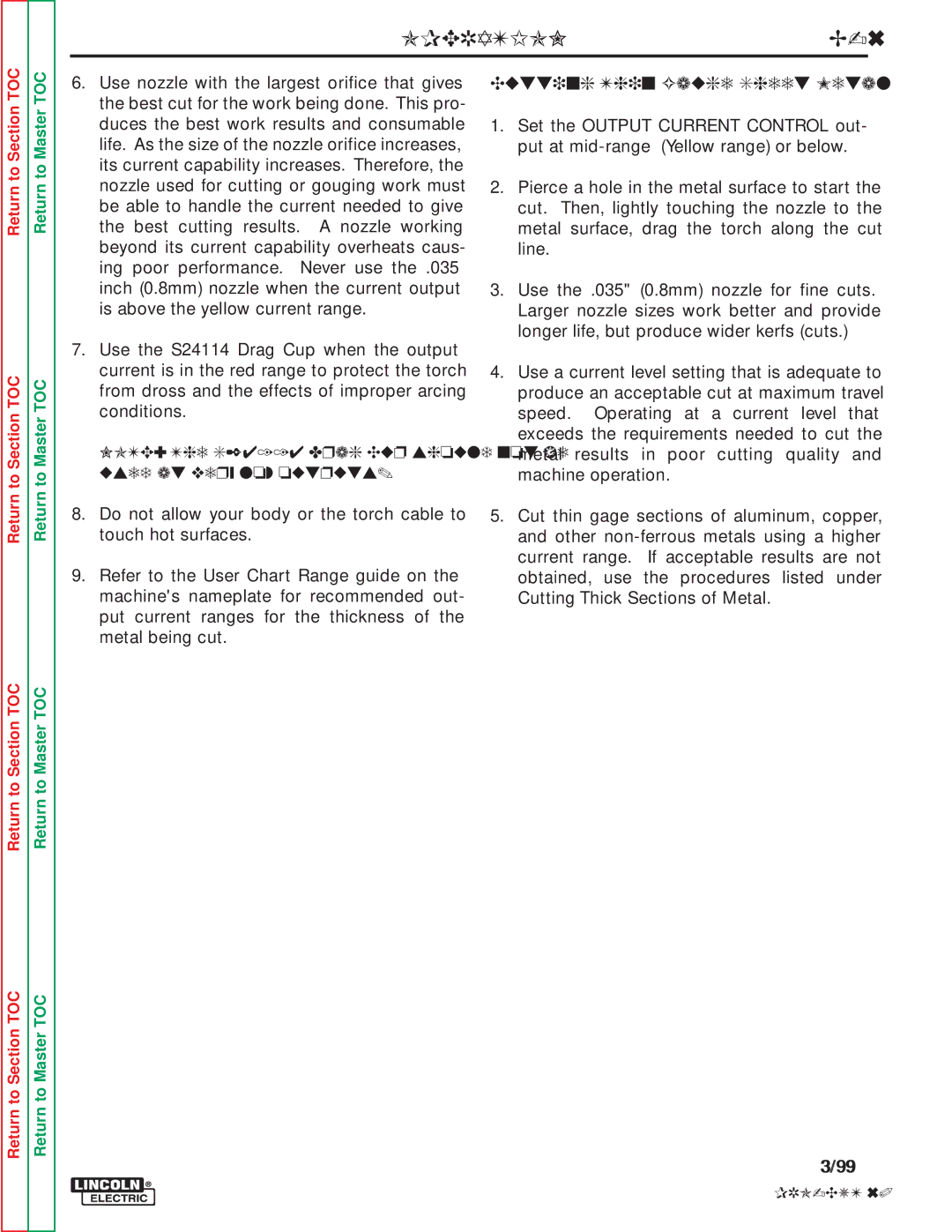
OPERATION |
Return to Section TOC
Return to Section TOC
Return to Section TOC
Return to Section TOC
Return to Master TOC
Return to Master TOC
Return to Master TOC
Return to Master TOC
6.Use nozzle with the largest orifice that gives the best cut for the work being done. This pro- duces the best work results and consumable life. As the size of the nozzle orifice increases, its current capability increases. Therefore, the nozzle used for cutting or gouging work must be able to handle the current needed to give the best cutting results. A nozzle working beyond its current capability overheats caus- ing poor performance. Never use the .035 inch (0.8mm) nozzle when the current output is above the yellow current range.
7.Use the S24114 Drag Cup when the output current is in the red range to protect the torch from dross and the effects of improper arcing conditions.
NOTE: The S24114 Drag Cup should not be used at very low outputs.
8.Do not allow your body or the torch cable to touch hot surfaces.
9.Refer to the User Chart Range guide on the machine's nameplate for recommended out- put current ranges for the thickness of the metal being cut.
Cutting Thin Gauge Sheet Metal
1.Set the OUTPUT CURRENT CONTROL out- put at
2.Pierce a hole in the metal surface to start the cut. Then, lightly touching the nozzle to the metal surface, drag the torch along the cut line.
3.Use the .035" (0.8mm) nozzle for fine cuts. Larger nozzle sizes work better and provide longer life, but produce wider kerfs (cuts.)
4.Use a current level setting that is adequate to produce an acceptable cut at maximum travel speed. Operating at a current level that exceeds the requirements needed to cut the metal results in poor cutting quality and machine operation.
5.Cut thin gage sections of aluminum, copper, and other
3/99
